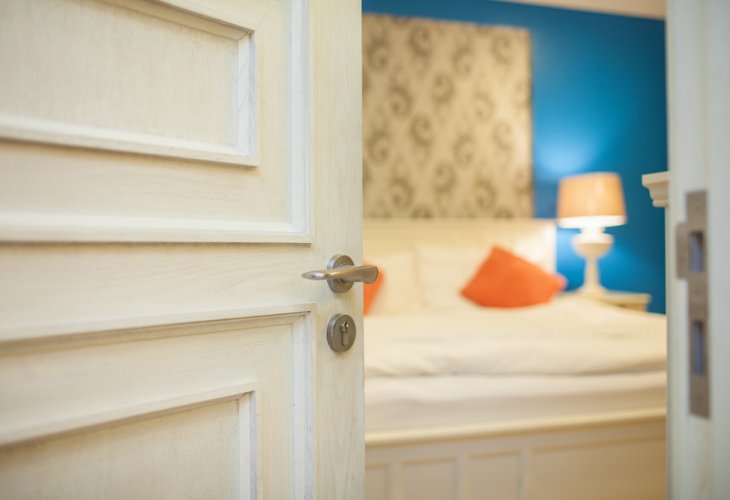Health and Nutrition
Should You Sleep with the Door Open or Closed? Experts Reveal the Safer, Healthier Choice
This simple bedroom habit can improve your sleep quality, reduce allergies, and even save your life in an emergency
 (Photo: shutterstock)
(Photo: shutterstock)Keeping your bedroom door open or closed when you sleep may seem inconsequential, but it can actually make a big difference. Following are four key reasons why the decision matters more than you might think:
1. Reduce Allergies
If you suffer from allergies, sleeping with the door open might not be the best idea. Dust, pollen, and other airborne particles can easily drift in from other parts of the house. Closing your door helps limit exposure and can improve air quality in your room, leading to more restful and symptom-free sleep.
2. Minimize Light and Noise Disruption
Your body produces melatonin — a hormone that regulates your sleep-wake cycle, based on how much light you’re exposed to. An open door can let in hallway lights or early morning sun, disrupting this natural rhythm.
Likewise, open doors make you more vulnerable to noise from other parts of the home, whether it’s someone watching TV late or early morning kitchen clatter. A closed door helps insulate against both light and sound, giving your brain the quiet, dark environment it needs to sleep deeply.
3. Privacy and Psychological Comfort
Sleeping with the door closed can increase your sense of privacy, safety, and control over your personal space. This subtle psychological comfort often leads to deeper, more secure sleep.
4. Fire Safety
Surprisingly, closing your door at night could save your life in the event of a fire. According to fire safety studies, a closed door significantly slows the spread of smoke and toxic gases. In fact, your chances of survival in a fire can double if you sleep behind a closed door.
Whether it’s for better health, deeper sleep, or safety, there’s strong evidence that sleeping with the door closed is the smarter and safer choice.

